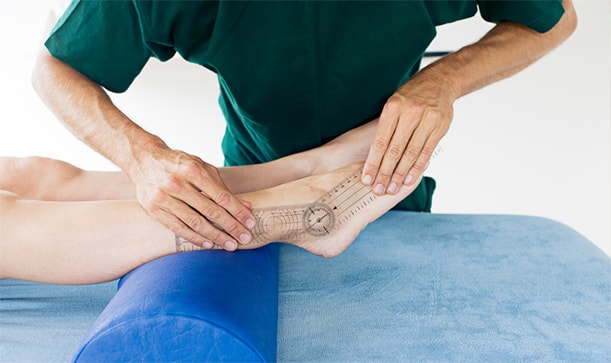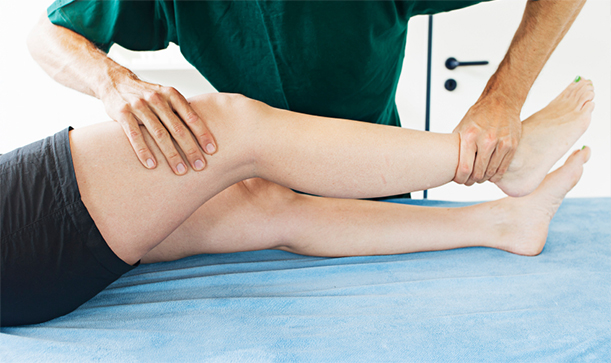CK Physiotherapy
AREAS COVERED
W7, W5, W13, Ealing, West London
57 Elthorne Avenue
Hanwell, W7 2JY
T: 020 8566 4113
M: 079 572 46185
E: info@ckphysio.co.uk
Location / Parking
We are situated in Hanwell, between Boston Manor Road and Northfields Avenue, south of the Uxbridge Road.57 Elthorne Avenue
Hanwell, W7 2JY
There are parking restrictions Mon - Fri 9-10am and 2-3pm. If you need a permit during this time please inform your therapist when you arrive. There are no parking restrictions at other times.
Opening Times
Please phone the number above during working hours to make an appointment. Our reception service will be happy to book your session.
London Underground / Bus Services
London Underground
10 min. walk from Boston Manor Tube Station.
15 min. walk from Northfields Tube Station.
Bus Service
E8, E3, E2, 207, 607, 83
Request Call Back
Our Blog
New year, new you: embracing physiotherapy in everyday life
By: admin Date: Jan 30th, 2023January is the time of year when many people make resolutions to improve their health and well-being.
At CK Physiotherapy, we’re big advocates for setting “New Year, New You” objectives for yourself. Making positive lifestyle changes is something that should be celebrated and encouraged.
But a common mistake that people make is being too ambitious in their resolutions.
People with no running experience decide to sign up to run a marathon in 5 months' time.
Others decide that they are going to embrace healthy living and lose several stones in weight by the Spring.
Some might take out a new health club membership and decide that as part of their new active lifestyle, they are going to hit the gym every single day, without fail.
From a physiotherapist’s perspective, none of these goals are advisable. They are also not realistic.
When you set unrealistic goals for yourself, you are increasing your chances of failure and disappointment, which may ultimately cause you to give up on your health and fitness goals.
And by doing too much, too soon, you also put yourself at risk of illness or injury.
In this post, we’ll look at physiotherapist advice for approaching a more active lifestyle, and how physiotherapy might be helpful on your path to achieving your goals.
Approaching lifestyle changes: physiotherapist advice
Possibly the best advice we could give as physiotherapists is that making lifestyle changes is a journey, not a destination.
Many of the fitness-related injuries we treat in the first three months of the year are from people who have simply over-trained or pushed themselves too hard in pursuit of unrealistic targets.
To help avoid injury, it's important to start slowly and set realistic goals.
Be honest about your current fitness levels. If you haven’t been active for a while, make sure you are not overdoing it.
If you are new to exercise, we’d recommend starting with low-impact activities such as walking, swimming or cycling. You can gradually increase the intensity and duration of your exercise as you become more comfortable.
It’s also important to include a suitable warm-up and cool-down routine that targets the muscles you’ll be using in your chosen exercise.
An effective warm-up will increase blood flow to the muscles, preparing them for the workout. An effective cool-down routine can help to prevent muscle soreness and stiffness.
We’d also recommend being mindful of your posture while performing any physical activity as part of your new active lifestyle. A qualified physiotherapist can provide guidance to help you improve your posture and body mechanics as you exercise.
Remember, making lifestyle changes is a journey, not a destination.
With a little patience and persistence, you can achieve your healthy living goals and enjoy a more active lifestyle.
Who can benefit from physiotherapy?
Physiotherapy can improve the physical well-being of people of all ages and fitness levels.
Athletes
For athletes, or people starting with a new active lifestyle, physiotherapy can help to improve performance and avoid injury.
By following physiotherapist advice with a personalised exercise plan, athletes can help to improve their strength, power, endurance, balance, and coordination with physiotherapy.
Home workers
With the rise of flexible working, many home workers are using equipment that isn’t ideal for a correct working posture. It’s no surprise that we’re seeing an increase in work-related back pain. Physiotherapist advice can help with exercises to alleviate back pain and can provide guidance on how to improve your posture when home working.
Muscle or skeletal injuries
For people with muscle or skeletal injuries, physiotherapy can also help.
A qualified physiotherapist will identify the most effective treatment methods to help patients recover from sprains, strains, and fractures. Physiotherapy can help to reduce pain, improve mobility, and increase the strength of the affected areas.
Elderly
For elderly adults, physiotherapy can help people retain their independence and maintain an active lifestyle.
As we get older, it’s common to experience changes in our body that affect our mobility, balance, and strength. By taking physiotherapist advice, older adults can reduce their risk of falls, improve their balance, and increase their strength and endurance.
Post-surgery
Physiotherapy can also help with recovery after surgery by helping patients to regain their range of motion and strength.
Young children and adolescents
Paediatric physiotherapy can also help young children with a variety of conditions and can provide education and support for parents to help manage their child’s condition.
What are the benefits of physiotherapy in everyday life?
We’ve seen that physiotherapist advice isn’t just for athletes or people that are looking to enjoy a more active lifestyle.
Physiotherapy can be valuable for a wide range of people in everyday life.
Some specific areas that physiotherapy can be helpful for include:
-
Pain management:
Physiotherapy can help to reduce and manage chronic pain conditions throughout your body. So, if you’re suffering pain in any of your muscles or joints, consider getting a physiotherapists advice.
-
Improved mobility:
Physiotherapist advice can help improve your range of motion, flexibility, and overall mobility if you’re suffering from joint stiffness.
-
Postural correction:
Physiotherapy can help to correct poor posture. Left untreated, poor posture can lead to a number of significant problems, so getting physiotherapist advice early is recommended.
-
Cardiovascular and respiratory function:
Physiotherapy can help patients who suffer from conditions affecting their heart and lungs.
What are some common physiotherapy exercises that I can complete at home?
If you’re curious about the type of exercises a physiotherapist might advise to help you in your everyday life, we’ve put together a list of 5 common exercises targeting different areas of the body
Before starting with any of these exercises, please get professional physiotherapist advice to ensure that they are safe and appropriate for your condition.
Pelvic Tilt
This is a great exercise for strengthening your core and improving your posture.
-
Start by lying on your back on a mat or a comfortable surface.
-
Place your arms at your sides and keep your feet flat on the floor.
-
Bend your knees and keep them together.
-
Tense your stomach muscles.
-
With your stomach muscles engaged, lift your pelvis.
-
Hold this position for five seconds.
-
Slowly return to the starting position.
-
Repeat the exercise five times
Bridge
The bridge exercise is great for targeting your glutes, and can also help with lower back, knee, and hip pain.
-
Lay on your back on a flat, comfortable surface.
-
Bend your knees, taking care to keep your feet on the floor.
-
Next, squeeze your buttocks (glute muscles) together.
-
With your glutes engaged, lift your hips up off the floor.
-
Hold this position for a few seconds.
-
Slowly lower yourself back down to the starting position.
-
Repeat the exercise five times.
Calf Raise
Calf muscles help to absorb the impact when you walk, run or jump. Without effective calf muscles, you’re more susceptible to knee and hip pain.
This is a great exercise to activate your calf muscles.
-
Find a wall or other vertical surface to use for balance.
-
To get started, rise up on your toes, pushing on the balls of your feet.
-
You want to raise your heel as high as you can.
-
Hold this position for a few seconds.
-
Slowly lower your heel back down to the starting position.
-
Repeat the exercise ten times.
Lateral Leg Raises
The lateral leg raise is a great exercise to work your hips, thighs and glutes.
-
To get started, lie on your side on a comfortable surface.
-
Stack your legs on top of each other and use your arm to support your head.
-
Raise your top leg as high as you comfortably can.
-
You should start to feel a bit of tension in your hips, thighs, and glutes.
-
Hold the position for a second or two.
-
Slowly lower your leg to the starting position.
-
Repeat five times, then turn over to switch legs.
Toe Curls
If you’re looking for an exercise to strengthen and improve flexibility in the muscles in your toes and feet, this is a great option.
Before you get started, you’ll need a chair and a small towel.
-
Sit up on the chair with your feet flat on the floor.
-
Lay your towel on the floor in front of you.
-
Place the toes of one foot on the towel and try to grasp it between your toes.
-
Try to pull it towards you.
-
Repeat this exercise five times before switching to the other foot.
Looking for personalised physiotherapist advice?
Whether you're an accomplished athlete, just starting to make some lifestyle changes, recovering from an injury or simply spending more time working from home - physiotherapy can help treat the aches and pains you suffer with in your everyday life.
It's important not to wait too long to get physiotherapist advice to address muscle or joint pain as it can often become more serious over time.
At CK Physiotherapy, we have years of experience helping people with a variety of physiological issues.
Our team of experts can help identify and diagnose problems and develop a personalised treatment plan to get you on the road to recovery.
Our online consultations are flexible and can be scheduled at a time that works best for you, all from the comfort of your own home.
Book an online consultation today and take the first step towards a healthier and more active lifestyle.
https://www.westlondonphysio.co.uk/news-articles/new-year-new-me-new-injury
https://healthiack.com/fitness/why-physiotherapy-is-beneficial-for-your-everyday-health-wellbeing
https://www.nhs.uk/conditions/physiotherapy/
https://www.medicalnewstoday.com/articles/320964
https://radianmobility.com/physiotherapy/top-10-physical-therapy-exercises-you-can-do-at-home/
https://fitnessdrum.com/physiotherapy-exercises-you-can-do-at-home/
https://activerehab.com.au/services/rehabilitation/cardiorespiratory-physiotherapy/





